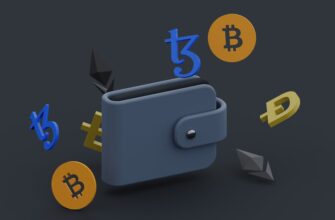Cryptocurrency has revolutionized the financial world by introducing decentralized, transparent, and secure systems for transferring value. One critical aspect of blockchain technology is its ability to publicly track transactions and ownership through tools like a cryptocurrency holders list. In this article, we’ll explore what a crypto holders list is, why it matters, and how you can access this data.
## What Is a Cryptocurrency Holders List?
A cryptocurrency holders list is a record of wallet addresses and the corresponding balances of a specific cryptocurrency. Since blockchains are public ledgers, anyone can view transaction histories and wallet balances. These lists reveal how tokens are distributed among investors, exchanges, and projects. However, wallet addresses are pseudonymous, meaning they don’t directly reveal real-world identities unless linked through external data.
## Why Cryptocurrency Holders Lists Matter
### 1. Transparency and Trust
Blockchain’s transparency allows users to verify the legitimacy of a project. A holders list can show whether tokens are concentrated among a few “whales” (large holders) or distributed widely, which impacts market stability.
### 2. Market Analysis
Investors use holders lists to identify trends, such as accumulation by institutional players or sell-offs by early adopters. For example, a sudden transfer to exchanges might signal an impending price drop.
### 3. Security Monitoring
Tracking large wallets helps detect suspicious activity, like unauthorized transfers or potential hacks. Projects often monitor top holders to safeguard ecosystem health.
### 4. Regulatory Compliance
Governments and regulators analyze holders lists to enforce anti-money laundering (AML) laws and tax regulations.
## How to Access a Cryptocurrency Holders List
### 1. Blockchain Explorers
Tools like Etherscan (Ethereum), BscScan (Binance Smart Chain), and Blockchain.com (Bitcoin) let you search wallet addresses and view balances. For example, checking Etherscan for Ethereum’s top holders reveals exchanges like Binance and Coinbase.
### 2. Third-Party Analytics Platforms
Websites such as CoinMarketCap, CoinGecko, and Nansen provide curated holders lists with additional insights, like identifying institutional wallets.
### 3. Project-Specific Reports
Many crypto projects publish quarterly or annual reports detailing token distribution. For instance, Binance shares updates on BNB token burns and holdings.
### 4. API Integrations
Developers can access holders list data programmatically using APIs from platforms like Covalent or Glassnode.
## Examples of Cryptocurrency Holders Lists
### Bitcoin (BTC)
Bitcoin’s holders list includes over 50 million addresses. The largest wallets belong to exchanges like Coinbase and Binance, alongside early adopters (e.g., Satoshi Nakamoto’s rumored 1M BTC stash).
### Ethereum (ETH)
Ethereum’s top holders include staking contracts, decentralized finance (DeFi) protocols, and exchanges. The Beacon Chain deposit contract holds over 26% of circulating ETH.
### Binance Coin (BNB)
Binance regularly burns BNB tokens, reducing supply. Their transparency reports detail holdings, burns, and ecosystem allocations.
### Cardano (ADA)
Cardano’s holders list highlights stake distribution among pools, with over 70% of ADA staked for network security.
## Challenges and Limitations
– **Privacy Concerns**: Pseudonymity complicates linking addresses to real identities.
– **Inaccurate Assumptions**: Exchange-held tokens represent multiple users, skewing concentration metrics.
– **Technical Barriers**: Non-technical users may struggle to interpret raw blockchain data.
## FAQ About Cryptocurrency Holders Lists
### 1. Can I See Real Names in a Crypto Holders List?
No—wallet addresses are pseudonymous. However, regulators and analysts sometimes link addresses to entities through patterns or leaks.
### 2. How Often Are Holders Lists Updated?
Blockchain explorers update in real-time. Third-party platforms may delay data by minutes or hours.
### 3. Are There Risks to Sharing My Wallet Address?
Sharing your address exposes your transaction history. Use separate wallets for privacy.
### 4. Can Privacy Coins Like Monero Be Tracked?
No—privacy coins obscure transaction details, making holders lists inaccessible.
## Final Thoughts
Cryptocurrency holders lists are powerful tools for investors, developers, and regulators. By understanding how to access and interpret this data, you can make informed decisions in the dynamic crypto market. Always combine holders list insights with broader market analysis for a balanced perspective.








